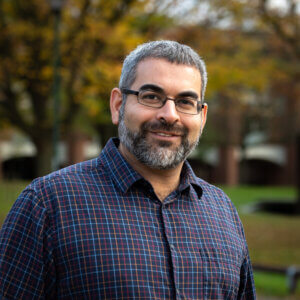Duration approx. 90 minutes.
Panelists
Fentse Malatji is a UX/UI designer who is keenly interested in how digital communities can create impact. She has worked in the fields of product design, digital strategy and advocacy. She previously worked as a digital strategist at Youth Capital, a campaign advocating for policy change to solve youth unemployment. Her goal in life is to work on projects that improve people’s quality of life through an in-depth understanding of people’s needs, motivations and goals.
Website: youthcapital.co.za
Instagram/TikTok: @youthcapitalsa
Poppy Wood is the Managing Director of Reset.Tech, a global non-profit focused on tackling digital threats to democracy. Poppy joined Reset.Tech in 2020, leading public policy engagement in the UK, Canada and Australia, during which time she worked closely with policymakers on legislation such as the Online Safety Act and News Media Bargaining Code. In 2024, as Reset.Tech set up as an independent organisation, Poppy became Reset’s Managing Director, leading its organisational strategy, steering its policy and research agenda, as well as working with partners to help maximise their impact. Previously, Poppy led a number of technology advisory businesses, supporting some of the world’s leading technology companies and start-ups. She also worked in Downing Street for two years where she was an advisor on public appointments and tech policy.
Professor Robin Banerjee is a professor of developmental psychology and the inaugural Pro-Vice-Chancellor for Global and Civic Engagement at the University of Sussex. Formerly Head of the School of Psychology, his research focuses on the social and emotional development of young people, and he works closely with practitioners and policymakers in the areas of education and mental health. He founded the Sussex Centre for Research on Kindness, an interdisciplinary research centre focused on illuminating the nature of kindness and its impacts on people and communities. Professor Banerjee recently led The Kindness Test, a partnership with the BBC that became the world’s largest ever public science project on kindness. He is an expert advisor to EmpathyLab, an organisation that works with schools, libraries, and other community stakeholders to promote empathy and reading for pleasure through the power of children’s books.
Alison Jane Martingano, Ph.D., is an Assistant Professor at the University of Wisconsin – Green Bay, specializing in empathy research. Her work likens empathy to a muscle, proposing that regular exercises like perspective-taking can bolster empathy over time. This principle guides her inquiries into the impact of varied activities and life experiences – reading, using virtual reality, social media, emigrating, or attending college – on the development of empathy skills. She completed her Ph.D. at the New School for Social Research in 2020, followed by postdoctoral training at the NIH. With over 20 peer-reviewed publications and more than 1000 citations, Alison Jane is an emerging scholar with a rapidly expanding portfolio. She’s dedicated to accessible education, especially for first-generation students, and communicates science through a Psychology Today blog, her Psychology & Stuff podcast, and a recent TEDx talk.
Website: https://Alisonjanemartingano.com
Instagram: https://www.instagram.com/alisonjanemartingano/
Blog: https://www.psychologytoday.com/us/contributors/alison-jane-martingano-phd
Podcast: https://www.uwgb.edu/podcasts/shows/psych-stuff/
Patrick Riccards is executive director and CEO of Life After Hate, the nation’s leader in the violence intervention community and the first nonprofit in the United States dedicated to helping individuals disengage from violent hate groups and hateful online spaces.
During his career, Pat has advised three presidential administrations and more than a half-dozen cabinet-level agencies on policy and public engagement. He has also worked for a member of the U.S. House of Representatives and three U.S. Senators, as well as for the Senate Appropriations Committee. A nationally recognized author, he writes and tweets under the handle Eduflack. He is the author of two award-winning books and primary editor and contributing author of two other books. Patrick regularly speaks on the intersections of policy, research, media, and community engagement, as well as on how to successfully disengage from violent extremism.
Twitter: @EduflackWebsite: https://patrickrriccards.com/





